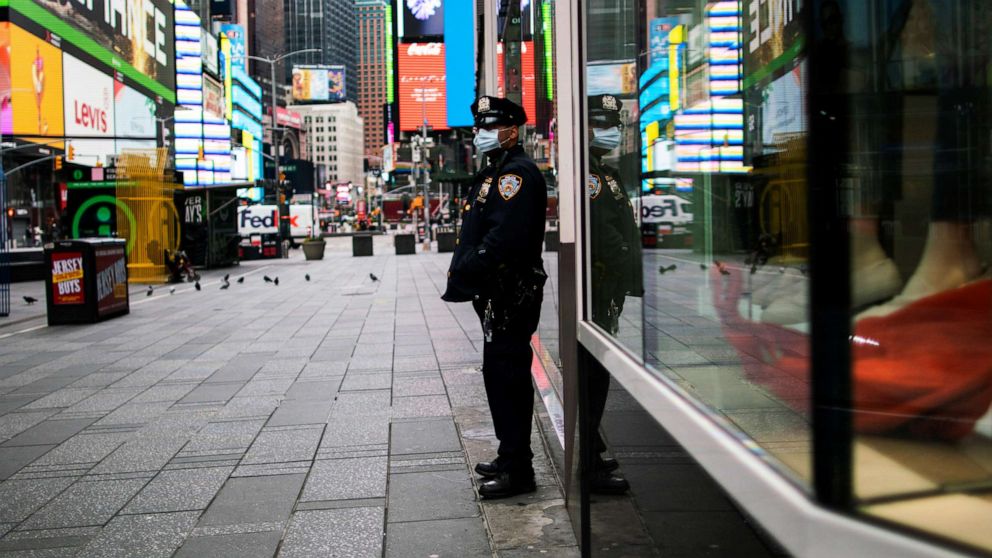US police departments issued guidance on responding to calls during COVID-19 pandemic, survey shows
A recent survey done by the International Association of Chiefs of Police and George Mason University shows that 91% of the responding departments have offered guidance to officers over COVID-19 concerns.
The survey, obtained by ABC News, shows that most police departments were prepared for COVID-19 and more than 1,000 departments around the country were ready to instruct their men and women on calls of service. But departments could be doing more to obtain personal protective equipment for officers. Just 15% of agency respondents rated their ability to provide PPE as “excellent."
Steve Casstevens, the president of the IACP and chief of the Buffalo Grove Police Department, told ABC News that some agencies didn't realize the long-term effects of the virus.
"I don't think a lot of them expected it to go on this long," he said. "As this got worse and worse, policies changed."
Now it is standard procedure for all officers to wear masks, Casstevens noted.

Fifty-seven percent of the agencies surveyed have also experienced “significant declines in their calls for service, with 14% of respondents noting more than a 50% reduction in calls for service.”
One agency that is still taking routine calls for service is the Rhode Island State Police.
"The amount of activity is down, simply because people aren't going to work, people are staying home and the restaurants and bars are closed," Kevin Barry, deputy superintendent of the Rhode Island State Police, told ABC News.
In Fairfax County, Virginia, police chief Edwin C. Roessler Jr. told ABC News that the academy is still in session.
"Our recruit class is in session, and we are using social distancing and using virtual training at the Academy in compliance with social distance and executive orders from the governor," he said.
Casstevens said he gives the distillery industry a lot of credit for making hand sanitizers and donating it to law enforcement, adding that his department in Illinois only got its first shipment of protective masks this week.
"Everything else we've either purchased or we had donated," he said.




